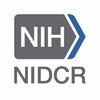
Influence of Two Paraffin Wax Chewing Gums of Different Consistency on the Stimulated Saliva Flow...
XerostomiaThe study examines two different chewing gums with regard to consistency and its influence on the result of sialometry

Effects of Hydroxychloroquine on Oral Complaints of Sjögren Patients
Sjögren's SyndromeXerostomiaChronic inflammation that comprises the exocrine glands' function leads to xerophthalmia and xerostomia in Sjögren's syndrome. The oral consequences range widely and they are related to decreased salivary output. Hydroxychloroquine may inhibit cholinesterase activity in salivary glands via interference with antigen processing mechanism, and thus, the investigators' hypothesis was that salivary gland function may be improved if treated with hydroxychloroquine. The effects of hydroxychloroquine on the salivary flow rate, subjective and objective parameters of the patients were also assessed.

OGT Spray in the Management of Xerostomia in the Elderly
XEROSTOMIAThe primary objective of the trial is to evaluate the efficacy, safety and clinical acceptability of OGT oromucosal spray in the relief of symptoms and signs of xerostomia in comparison with a saliva substitute (European Medical Device).

Salivary Markers in Patients With Xerostomia
Xerostomia Due to Hyposecretion of Salivary GlandThe purpose of this study was to investigate the salivary levels of inflammatory and their association with oral health in xerostomía patient

Efficacy Study of Oxygenated Glycerol Triesters to Treat Xerostomia
XerostomiaThe objective of the trial was to evaluate the efficacy and clinical safety and acceptability of Oxygenated Glycerol Triesters in the relief of symptoms of xerostomia versus a reference comparator.

Study of Oral Bacteria in Patients With Dry Mouth
XerostomiaAutoimmune DiseasesThis study will examine the types of bacteria present in the dental plaque of patients with persistent dry mouth. Saliva is essential for digestion and swallowing and for maintaining the normal mineralization of teeth. People who suffer from dry mouth usually have a significant increase in tooth decay (caries). This study will determine if this increase is due solely to reduced salivary flow or also to an increase in certain types of bacteria in the mouth. Patients participating in the following NIDCR protocols may be eligible for this study: Evaluation and Treatment of Salivary Dysfunction (84-D-0056), Natural History of Salivary Gland Dysfunction and Sjogren's Syndrome Research Project (99-D-0070), and Salivary Evaluation in Normal Volunteers (94-D-0018). Participants will have three appointments at the NIH dental clinic as follows: Visit 1 Dental examination and instruction on keeping a detailed diary of food intake. Visit 2 (1 week after visit 1) Attachment of a bacteria collection device (described below) to the side of a tooth. Visit 3 (48 hours after visit 2) Removal of the collection device, tooth cleaning and polishing, and submission of food diary. The bacteria collection device is a 4mm x 2mm x 2mm square of sterilized tooth obtained from slicing an extracted healthy tooth donated by another patient. The donated teeth are either extracted impacted third molars (wisdom teeth) or teeth extracted for teeth straightening (orthodontics). The device is heat-sterilized before being bonded to the participant's tooth. The dental cement used for bonding can be removed after 48 hours with no damage to the surface of the participant's tooth.

Coconut Oil: Managing Radiation-Induced Xerostomia
XerostomiaThis study will seek to assess the experience of using of coconut oil as an approach to managing radiation-induced xerostomia in patients previously treated for cancer in the head and neck. There is a high prevalence of radiation-induced xerostomia in this patient population, and the condition has significant negative impact on patients' quality of life. There is currently no agreed-upon standard of care for the treatment of this condition. Anecdotal evidence from patients and both physicians and allied healthcare providers suggests improvement in this condition with the use of coconut oil, but this has not previously been formally studied. We therefore propose a case series study to formally assess the tolerability and efficacy of coconut oil as an approach to managing radiation-induced xerostomia.

Effectiveness of Three Different Oral Moisturizers in Palliative Care Patients.
XerostomiaThis study compares the effectiveness of 3 different oral moisturizers; 17% watery solution of glycerol, OGT oral spray, Aequasyal, and a newly developed Product, Salient.

The Effect of Biotene® on the Symptoms of Xerostomia and Mastication and Swallowing
XerostomiaHyposalivationThis study will compare the effects of Biotene® Oral Balance Moisturizing Gel (Biotene), an over-the-counter artificial saliva, that the effects of a sham condition on oral health-related quality of life, mastication, and swallowing in four groups of participants: 1) Participants not experiencing xerostomia or hyposalivation, 2) Participants experiencing xerostomia and hyposalivation, 3) Participants experiencing xerostomia but not hyposalivation, 4) Participants experiencing hyposalivation but not xerostomia.

Evaluation of Safety and Efficacy of Using Lipsus Device for Oral Wetting
Oral DrynessGeneral SurgeryFollowing waking up from surgery performed under general anesthesia, patients are suffering from discomforting oral dryness, and moreover, they are not allowed drinking for 24 hours. The current management involves the wetting of patient's lips using wet bandage. This action is dependent on the presence of a family member or a nurse, which is not always possible. Many patients describe the oral dryness as a suffering, added to the suffering anyway entailed by surgery. The investigated Lipsus device is intended for oral wetting, relieving patient's suffering and minimizing the dependence on continuous presence next to patient's bed.
